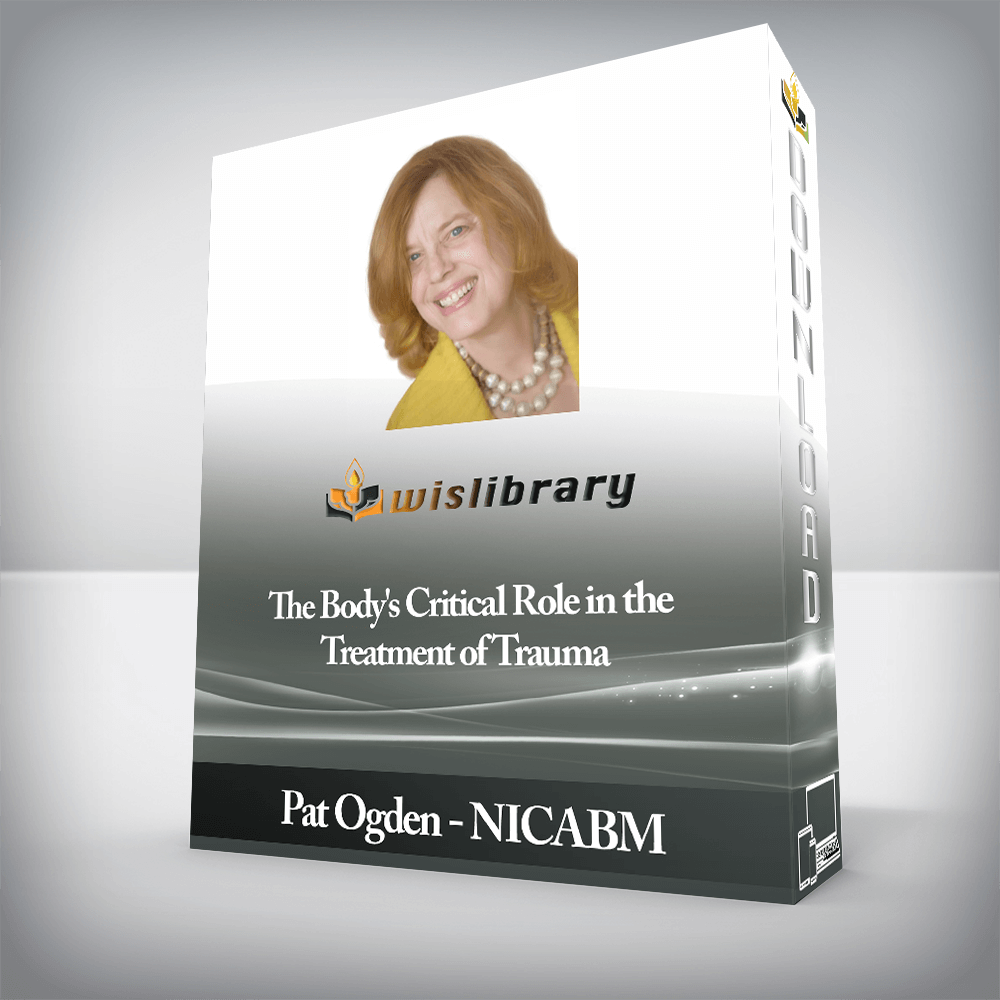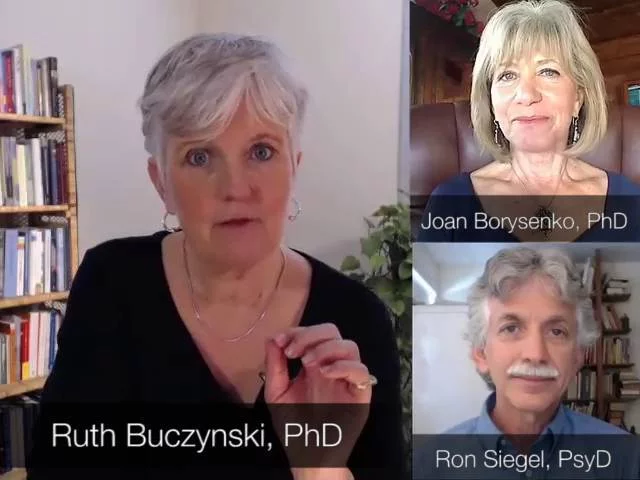How to Resolve Trauma Symptoms That Remain in the Body.
File Size: 3.28 GB.
Pat Ogden – NICABM – The Body’s Critical Role in the Treatment of Trauma

Trauma dysregulates the nervous system and keeps the body hypervigilant toward potential threats.
So how can we help clients experience relief from the painful trauma symptoms that remain in the body?
That’s why we’re bringing you . . .
Why the Body Holds the Key to the Treatment of Trauma
Pat Ogden, PhD
- Two Key Skills for Identifying Trauma Memory in the Body
- How to Help Patients Connect Emotions with Body Experiences
- The Crucial First Step in Trauma Therapy
- How to Help Patients Develop the Resources for Stability
- Why It’s Important to Help Trauma Patients Recognize Body Sensations
- How Early Experience Shapes Body Movement (and How It Can Be Shifted)
By working with the impact of trauma in the body, we can help clients regulate their nervous system so they can feel safe.
Here’s What You’ll Get:
Everything is yours to keep forever in your professional library
|
Downloadable video and audio to watch or listen to when it’s convenient for you |
|
TalkBack Segment to distill key ideas (this is where we “land” the session) |
|
Next Week in Your Practice video to give you concrete strategies to use with patients |
|
Printable QuickStart Guide to make review and action simpler than ever |
|
Professionally-formatted transcript of the session |
This Program Can Change the Way You Practice
As a Certified Bioenergetic Therapist, I am extremely pleased with this session… I think Dr. Ogden’ presentation about the importance of unders
“As a Certified Bioenergetic Therapist, I am extremely pleased with this session… I think Dr. Ogden’ presentation about the importance of understanding and using the language of the body in the therapeutic process was very clear. I appreciated how she explained the “somatic narrative” and how movement can reveal parts of a client’s story that are not available on a conscious or verbal level…I believe that working with the language of the body as Dr. Ogden does is elegant and essential work…I appreciate …the quality of the discussion.”
Jody Brooks, LPC
Rochester, MI
. . . some dare to go the extra journey to research and educate
“These NICABM series keep me afloat, in touch, on track, well trained in my field, and more personally healthy. The best aspect, though, is that I feel validated and comforted knowing that some dare to go the extra journey to research and educate, so I can walk the path to health, and can share with others.”
Mary Corsello-Vilcheck, LCSW
Midlothian, VA
. . . many Occupational Therapists . . . could integrate [this] knowledge into their practices . . .
“This entire session is packed with knowledge & has been fodder for integrating into my functional repertoire. I worked for 17 years with clients who were injured at work…I know there are many Occupational Therapists who could integrate much of the shared knowledge into their practices as well. Thank you for this superb session!”
Jude Driscoll, Occupational Therapist
Prince Edward Island, Canada
You’ll Get Practical Tools to Help You Quickly Integrate Stephen’s Teaching into Your Work
Synthesize Key Concepts So You Can Use Them Immediately
In the TalkBack Session, Ron Siegel, PsyD and Joan Borysenko, PhD join me to dig more deeply into Bessel’s teaching. Our job is to make yours easier by streamlining the information and making sure each point is crystal clear. We’ll examine key ideas, clarify critical concepts, and break it all down so you can gain confidence in your understanding.
Discover Concrete Practices That Will Work in Your Life (and with Your Patients)
Then, with “next week” in mind, we’ll turn smart ideas into easy-to-use solutions. In Next Week in Your Practice, Rick Hanson, PhD and Bill O’Hanlon, LMFT join me to give you specific strategies for helping people who have experienced developmental trauma self regulate. We’ll show you how to translate Bessel’s teaching into practices and exercises that you (or your clients) can use right away.
Uncover Core Ideas and Techniques at-a-Glance So You Have a “Cheat Sheet” When You Need It Most
The QuickStart Guide will help you stay fresh and confident as you turn Bessel’s insights into action. It’s an at-a-glance reference to the most powerful concepts and strategies for working with patients who have experienced trauma. We’ve gathered all the essential tools and methods into a concise, easy-to-use guide so you can quickly review and apply these ideas when you need them most.
Quickly Recall Crucial Details So You Can Apply Them with Confidence
Our Professional Transcript will help you reinforce key ideas so you can integrate them into your life and work. We’ve designed your transcript with an easy-to-use table of contents, clear, organized formatting, and helpful highlight quotes so you’ll have the information and exercises you need at your fingertips.
Why the Transcript Is Essential:
- The transcript makes it easy to go back and double check concepts, citations and names that are mentioned
- We put in a table of contents to make it easy for you to find the exact part of the webinar you need
- Having the concepts already written allows you to take notes on how you’re going to use the ideas rather than transcribing the ideas
- Some people simply learn better by reading than by listening or watching
- You will be able to print out and share techniques presented in the session with your patients
“I really liked being able to follow along with the transcripts as I listened…it was nice not to feel like I had to take notes. I really feel like I remember more when I both hear and see at the same time.”
Mary Ellen McNaughton, Masters in Counseling, Psychology Counselor
Kelowna, British Colombia, Canada









You must be <a href="https://wislibrary.org/my-account/">logged in</a> to post a review.